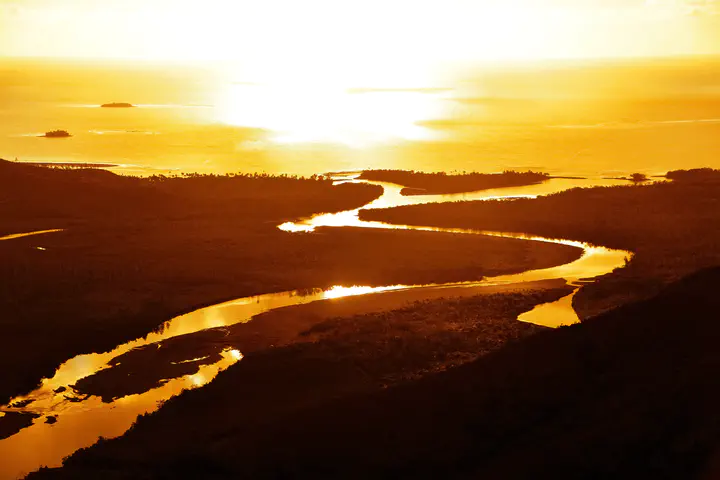Proejct: Social-ecological system analysis of the Yellow River Basin

Abstract
China’s Yellow River Basin (YRB) is one of the most anthropogenically altered large river basins worldwide. Therefore, coupling human and natural system studies is crucial to support its sustainability. This project aims at using a social-ecological system framework to deepen our understanding of this complex system.
Background
The global environment is under unprecedented pressure due to the strong influence of human activities, and the Earth is entering a new era of the Anthropocene. Understanding the mechanisms of modern environmental change and predicting future trends are at the forefront of Earth system science research (Steffen et al., 2020). This requires developing a holistic systems approach, coupling natural and human processes and exploring the mechanisms of human-earth system coupling in changing environments. The human-terrestrial system is a complex giant in which the natural geographical environment and human socio-economy interact and feedback. Revealing the evolution of its dynamic, resolving the coupling mechanism of processes, and clarifying the optimal regulation pathways can provide a solid theoretical foundation for regional sustainable development.
The Yellow River Basin (YRB) has been influenced by more than 3,000 years of historical development and modern high-intensity economic activities; the spatial linkages between human activities and the resources and environment, and the region’s upper, middle, and lower reaches, are still changing. The river basin is ideal for studying human-water systems in environmental change. Therefore, it is informative to elucidate the mechanism of socio-hydrological system coupling in the YRB, providing fundamental inspiration for water sustainable management worldwide, and promoting the development of earth system science in China through integrated research in the basin.
Goals & Scientific questions
(1) Identifying the evolution of the human-water relationship and its regimes in the YRB To establish indicators and methods for characterising changes in human-water relations regarding socio-ecological water use, water scarcity, water diversion and sand transport, and to analyse the development and evolution of human-water relations in the Yellow River basin at millennial, centennial and decennial scales.
(2) Feedback and its mechanism of the socio-hydrological system in the YRB Quantify the critical variables of the socio-hydrological system, identify the main human-water feedback and quantify the positive and negative feedback loops. Analyse the impact of social factors (e.g. economic development, management decisions, social perceptions, etc.) on socio-ecological processes in the basin (e.g. ecological health of the bay, flood and drought risk adaptation, water and sand regulation, etc.) through feedback loops to reveal human-water interactions and their synergistic evolutionary mechanisms.
(3) Dynamic of coupled human and hydrology system and its resilience in the YRB A comprehensive analysis of the dynamic evolution of the socio-ecological-hydrological system of the Yellow River basin and the establishment of a system of resilience indicators to characterise the basin’s response to climate change and human activities.
Specifically, I focus on the below scientific questions:
- What are the main drivers of the evolution of the human-water relationship in the YRB?
- How social elements, especially the variables of collective behaviour, influences the processes of the socio-hydrological system, taking the YRB as an informative example.
- In addition to engineering, how to build and improve the resilience of the social-hydrological system in the YRB through “soft” solutions from the social aspect.
TimeLine
2017:
- I started learning Ostrom’s social-ecological system framework; see post My understanding of Ostrom.
- I designed and applied a questionnaire survey in the floodplain within YRB.
2018:
- I finished my Bachelor’s degree dissertation, “Testing of Human-Flood Model: Taking floodplain of the Yellow River in Ningxia as an example”, which was rewarded as “Excellent Graduation Thesis”.
2019:
- I published a review article: Study on adaptive governance of social-ecological system_Progress and prospect.
2020:
- I published a research article: Sediment Transport under Increasing Anthropogenic Stress: Regime Shifts within the Yellow River, China.
- I published a review article: Achieving a Fit between Social and Ecological Systems in Drylands for Sustainability.
2021:
- I published a research article: Improving Representation of Collective Memory in Socio-hydrological Models and New Insights into Flood Risk Management.
- I published a review article: A review of community-based socio-ecological system adaptation pathways.
2022:
- I published a research article: Decreased Virtual Water Outflows from the Yellow River Basin Are Increasingly Critical to China.
Acknowledgement
This project is funded by:
- Prof. Shuaiwang’s National Natural Science Foundation of China Youth Fund",
- Prof. Bojie Fu’s National Natural Science Foundation of China
I also thank the following colleagues for their help (ordered by time):
- Dr Yunzhen Chen provided some of her research data.
- Dr Xutong Wu provided a lot of inspirative ideas in data analysis.
References
- W. Steffen, K. Richardson, J. Rockström, H. J. Schellnhuber, O. P. Dube, S. Dutreuil, T. M. Lenton, J. Lubchenco, The emergence and evolution of Earth System Science. Nature Reviews Earth & Environment. 1, 54–63 (2020).